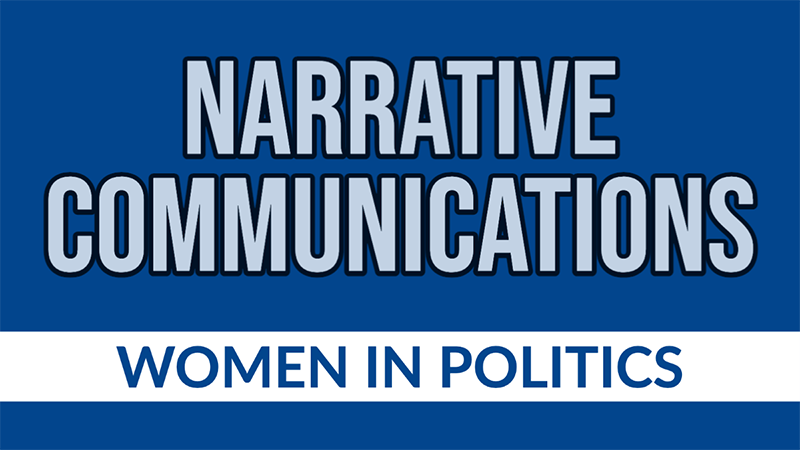Authenticity, vulnerability can bolster women-led political campaigns
April 25, 2022 • Jonathan McVerry

There are more than 600 organizations in the United States centered on coaching women to run and win political campaigns. Some topics – speechwriting and fundraising – are to be expected. But in one training program, two Page Center scholars found that the concept of authenticity repeatedly surfaced as a key element.
Despite a surge in interest over the past six years, women candidates face the same obstacles to public office that have been hindering them for decades.
“When women express interest in running, their authenticity comes into question,” said Stephanie Madden, Page Center senior research fellow and assistant professor at Penn State. “From competency to likability, it’s like there’s no way to win. That’s why we were interested in seeing what these programs were doing.”
Training programs, like Emerge, are designed to overcome common roadblocks and direct female candidates to public office at local, state, and national levels. Madden and coauthor Abbey Levenshus, associate professor at Butler University, conducted a Page Center-funded study to learn more.
For six months in 2016, Madden was part of the Pennsylvania chapter of Emerge, an organization that recruits and trains women to run for elected positions as Democratic candidates. Madden spent her weekends at different locations in the Commonwealth learning about campaigning – from writing press releases to soliciting donors to giving interviews.
She also had permission from the organization to monitor and interview the members of her cohort. It added up to 52 hours of participant observation, 15 in-depth interviews and extensive document analysis. The results from their study were published in the Journal of Public Relations Research.
From a public relations perspective, Madden was particularly interested in analyzing the narratives the candidates used to power their campaigns. She noticed that the stories about why the women got into politics and how they decided on the issues to fight for were integral. What was important, Madden found out, was communicating these stories in an authentic way.
Madden and Levenshus, learned that “acting like male candidates” or even mimicking a “typical politician” are not effective strategies. Instead, three areas of authenticity were identified that were critical to successful campaigning
Authentic ambitions
Women running for office felt the need to have a tangible origin story to fuel their campaigns. They felt interest and wanting to do good weren’t enough. “Women who had led relatively easy and privileged lives felt like they didn’t have a good enough reason to run,” Madden said. Trainings can help women deal with these stigmas and cultivate their authentic motivations for joining political life.
Be authentically you
Many of the women in the program were pleasantly surprised to learn that their authentic self was enough. They were taught not to change themselves. Instead, women were encouraged to present their authentic selves and use their real-life narratives to connect with others.
“I went into the program thinking they may train us on what colors to wear that are proven to make you more likable…or how to soften your appearance,” Madden said. “But that wasn't the training at all. They very much said, ‘If you have a tattoo sleeve and that's a big part of your identity, make that a part of your [political] identity.”
The authenticity continuum
The women in the program defined embracing their identities as being transparent. However, Madden and Levenshus found that it’s not “all or nothing.” The women were encouraged to make decisions on what they shared about their background and what they didn’t.
“Authenticity was linked with vulnerability to create opportunities for connection,” the scholars wrote. “However, authenticity as vulnerability comes with risks and exists on a continuum – particularly when a candidate’s vulnerability extended to other loved ones’ stories as well.”
This project was supported by the 2019 Page/Johnson Legacy Scholar Grant on narratives.

